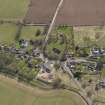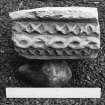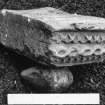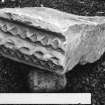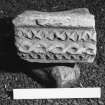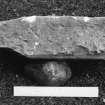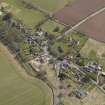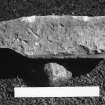Scheduled Maintenance
Please be advised that this website will undergo scheduled maintenance on the following dates: •
Tuesday 3rd December 11:00-15:00
During these times, some services may be temporarily unavailable. We apologise for any inconvenience this may cause.
Smailholm Church, Graveyard
Burial Ground (Period Unassigned)
Site Name Smailholm Church, Graveyard
Classification Burial Ground (Period Unassigned)
Canmore ID 99274
Site Number NT63NW 6.01
NGR NT 64884 36404
NGR Description Centred NT 64884 36404
Datum OSGB36 - NGR
Permalink http://canmore.org.uk/site/99274
- Council Scottish Borders, The
- Parish Smailholm
- Former Region Borders
- Former District Roxburgh
- Former County Roxburghshire
Some interesting funerary monuments can still be seen in the burial-ground attached to Smailholm Parish Church.
The earliest visible monuments are two seventeenth-century table tombs, so-called because they consist of a flat slab supported by stone 'legs' at each corner. The faces of the slabs carry commemorative inscriptions, which on these examples are no longer decipherable.
Another grave-marker of note is an early eighteenth-century memorial to James Mackdowal. It bears a carving of a winged cherub, representing the soul on its journey to heaven, and is accompanied by the words 'Memento Mori', which means 'Remember that you will die'. According to the inscription, Mackdowal had reached the respectable age of seventy-one years before his death on 24 December, 1704.
Text prepared by RCAHMS as part of the Accessing Scotland's Past project
NT63NW 6.01 centred 6488 3638
Parish Church, Smailholm. This church, standing within its graveyard near the centre of the village.
Tombstones:
The following tombstones in the churchyard date from before 1707:
(1) A small headstone with a scrolled top and a panel on the front containing a cherub's head, the margin above bearing the admonition MEMENTO MORI. The back is inscribed HEIR / LYES IAMES MACK/DOUEL WHO DE/PARTED THE 24 / OF DECEM 1704 / HIS AGE 71.
(2) Two table-stones probably of the 17th century. Their inscriptions are illegible.
RCAHMS 1956, visited 7 July 1932, 25 March 1952.
Fully described above , this church is in use as such.
Visited by OS (WDJ) 21 September 1963.
Sbc Note (15 April 2016)
Visibility: Standing structure or monument.
Information from Scottish Borders Council














